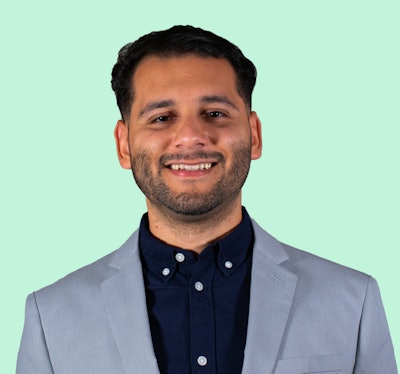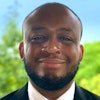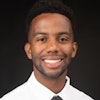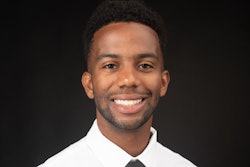Luis Miguel Mestre

Institution: Indiana University Bloomington
Graduate Program: Ph.D. in Epidemiology Education: B.S. in Biomathematics at Universidad Metropolitana (currently Universidad Ana G. Mendez Cupey Campus); M.S. in Mathematical Statistics at University of Puerto Rico at Mayaguez
Mentor: Nilsa Cintron-Rios, Ruth P. Morales Marcano and Ivelisse Hernandez at Escuela Superior Jose S. Alegria; Dr. Luis de la Torre-Quintana, Dr. Francisco Medina and Dr. Juan Arratia at Universidad Metropolitana; Dr. Damaris Santana-Morant at University of Puerto Rico at Mayaguez; Dr. David B. Allison, Dr. Nianjun Liu, Dr. Andrew W. Brown and Dr. Julia Fukuyama at Indiana University-Bloomington
Born in New York and raised in Puerto Rico, Luis Miguel Mestre’s educational trajectory was changed by Hurricane Maria in 2017. At the time he had a bachelor’s degree in biomathematics and was studying for his master’s in mathematical statistics when the devastation he witnessed ultimately caused him to pursue doctoral studies in epidemiology, the study of how to control diseases and other factors related to health. His primary research interests are aging and obesity.
“Most of the deaths were related to diabetic patients not having their insulin,” Mestre says. “There was no electricity, so we didn’t have refrigerators to keep the insulin. Cardiovascular patients didn’t have access to their medications.”
He says much of the tragedy could have been avoided.
“Not having knowledge about obesity, which is so prevalent in Puerto Rico, was one of the main factors that made the emergency worse,” says Mestre, now a doctoral student at Indiana University School of Public Health Bloomington. “If we had a lower amount of people with
obesity , maybe we could have had lower deaths because they would not rely as much on these medicines and they would be less vulnerable to natural catastrophes like this one. That motivated me to continue my professional career in public health.”
Mestre, whose goal is to complete his doctorate in May 2023, is a graduate student representative for the American Society for Nutrition and a member of The Obesity Society, the American Association for the Advancement of Science, the American Statistics Association and SACNAS (Advancing Chicanos/Hispanics and Native Americans in Science). As a Ph.D. student, he has coauthored six published papers and has nine manuscripts currently under peer review.
Mestre’s own battle with obesity informs his work. In 2016, he weighed around 250 pounds. With a history of diabetes in his family, he decided to improve his diet and overall health regimen. Over the next few years, he lost nearly 100 pounds, but like many graduate students, his self-care lapsed.
While the pandemic impacted Mestre’s research, it also led him to pause and take better care of himself. During the 2019-20 academic year, he was taking a large number of credit hours, applying for grants, working on multiple projects, and doing work related to his research assistantship. After the initial stress of quarantine subsided, he used that time to exercise, eat healthier, and sleep more hours per night.
“In my schedule, I started to include health-related tasks with the same weight and responsibility as work-related tasks,” he says. “That has helped me be more productive and efficient.”
Dr. David B. Allison, dean and distinguished professor at Indiana, notes that Mestre is a natural leader and steadfast diversity advocate with a focus on equitable distribution of resources. “Luis has a very strong social conscience and a very strong commitment to other people as people,” Allison says.
Mestre says there will be multiple solutions for the complex issues of obesity and cardiovascular disease. He is committed to doing the research necessary, which involves addressing healthcare inequities.
Following completion of his Ph.D., he is interested in doing a post-doctoral fellowship in obesity among underrepresented groups in the U.S. Beyond that, he can envision a career in the academy, but is also open to working in government and providing service to the people who need it.
Allison says Mestre has the ability and positive drive to work in government, academia, or industry. “I see him always taking things on where there is practical value,” he says.
“We can’t feel bad when factors that we cannot control go against us, but we need to be aware that it can happen and we need to find ways to deal with those possible risks,” says Mestre. “One of the greatest missions and challenges for our generation is learning how to manage risk.”















